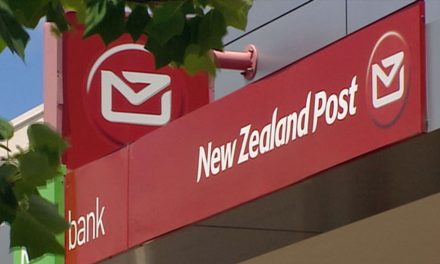
Governmant bill to remove postal monopoly (NZ)
This is Google's cache of http://www.jcampbell.com/rowland/pdf/country/nz/min_97b.htm.
Google's cache is the snapshot that we took of the page as we crawled the web.
The page may have changed since that time. Click here for the current page without highlighting.
Google is not affiliated with the authors of this page nor responsible for its content.
These search terms have been highlighted: post mail letter
——————————————————————————–
22 April 1997
Hon. Maurice Williamson, Minister of Communications
Government Bill to Remove Postal Monopoly
"The Government will introduce legislation today to allow private companies to compete with New Zealand Post in the delivery of standard letters", Communications Minister Maurice Williamson says.
"The removal of New Zealand Post's monopoly will allow full competition and offer substantial benefits for postal users. Opportunities will be created for a range of new service providers to enter the market and consumers will have increased choice in service providers, types of services and price packages.
"To ensure that universal service is maintained for the benefits of all New Zealanders, the Government will be putting safeguards in place. A new Deed of Understanding will be negotiated with New Zealand Post to guarantee the quality and frequency of service."
"The price of the standard letter will remain at 40 cents and be capped at no more than 45 cents for three years following the introduction of full competition. This will provide continued price stability for the foreseeable future".
The Minister says this legislation will contribute substantially to the objectives of the coalition agreement. "The coalition partners agreed to maintain an open, internationally competitive economy, by managing cost structures downwards and continuing deregulation. The coalition agreement also provides for New Zealand Post to be maintained in public ownership."
"Once the legislation has entered into effect, new operators will be able to offer letter delivery services in competition with New Zealand Post from a date to be appointed by the Governor-General by an Order in Council. This is unlikely to be before April 1998. In the meantime, the present regulatory regime will continue to apply and New Zealand Post will retain its monopoly.
Ends
Enquiries: Bridie Wilkinson (04) 471 9974
——————————————————————————–
Proposed Postal Services Regime: An Outline
Under the Postal Services Act 1987, New Zealand Post has the sole right to deliver letters weighing less than 200 grammes, for which a charge of 80c or less is made. Once the monopoly is removed, other postal operators will be free to compete in all sectors of the postal market.
The Postal Services Bill introduced today will:
remove New Zealand Post's present monopoly on the standard letter post;
allow full competition in postal services from a date to be appointed by the Governor-General by Order in Council;
provide for a transitional information disclosure regime to ensure that New Zealand Post continues to meet social obligations provided under the Deed of understanding (discussed below) and provides access to its network for competitors on fair and reasonable terms;
maintain current provisions ensuring the security and integrity of the postal system, and extend these provisions to new operators (provisions include requirements to pass on misdirected or wrongly addressed mail and penalties for unlawfully opening letters); and
provide for regulations to assist the coordination of box numbers and address information if necessary.
A new Deed of Understanding will be negotiated with New Zealand Post to:
(i) maintain the company's service levels and scope of the present network at current levels;
(ii) provide a price cap on the price of a basic letter so that it cannot rise beyond 45 cents for a period of three years, subject to movements in the CPI;
(iii) make changes to delivery service levels only in clearly defined circumstances, such as shifts in population, at the request of a community in a particular area; or where an alternative operator provides equivalent services under contract to New Zealand Post; and
(iv) provide access to its network for competitors on terms and conditions that are no less favourable than those offered to customers. This will enable competing operators to offer nationwide service.
The Deed will ensure continuity and stability in services to the public while competition develops. The Deed will be established for an indefinite period, but with provision for a review after three years, to ensure that the required levels of service remain appropriate as new competitors enter the market and begin to provide alternative services.
In return for continuing to meet the above social obligations, New Zealand Post will continue to be designated as New Zealand's official postal administration to the Universal Postal Union (the international organisation of postal operators which maintains the international postal network) for at least five years. New Zealand Post will also retain the exclusive right to issue "official" New Zealand postage stamps for philatelic purposes. This exclusive arrangement will initially be for a period of five years, after which time the Government may, if appropriate, nominate additional carriers for UPU purposes.
Postal Regulatory Environment: Key Issues
1 What benefits can be expected from removing New Zealand Post's monopoly on the delivery of letters?
Removing the monopoly and allowing further competition will offer benefits in terms of:
expected lower prices for a range of customers over time. This should lower businesses' operating costs generally, thus increasing the competitiveness of our business sector. It should make a small contribution to holding inflation and to export competitiveness;
further improved service performance and efficiency for New Zealand Post. The company has performed extremely well since corporatisation. Increased competition will, however, provide a spur to achieving even greater efficiency and responsiveness to consumers;
new entrants to the market, providing both new services, disciplines on prices to consumers and some additional employment; and
increased consumer choice.
There have been demonstrable benefits in other industries where competition has been introduced, such as airlines and telecommunications. In air transport, benefits have included lower prices, introduction of air bridges, additional flights and in-flight meals. In the telecommunications sector, prices for toll calls have fallen by some 50 per cent and service standards have improved substantially.
2 What competition is already allowed?
The present Act allows for competition in all areas except domestic letters weighing 200 grammes or less and costing 80 cents or less to send. Competition is already permitted in, for example, self-delivered mail, international mail, document exchanges and electronic mail.
3 What private services are already provided?
A wide range of private postal services are already available to consumers. A large number of courier companies offer services ranging from 15 minute to next day delivery. There is also competition in international mail from companies such as TNT and Mailboxes Etc. (which also offers a competing private box service).
4 What sort of services might be expected to emerge in a competitive environment?
In international mail, competition already exists and consumers have benefited from this. Before Christmas, for example, TNT offered to deliver Christmas cards anywhere in the world for 77 cents (and would collect them from customers if five or more were being sent). Mailboxes Etc. also offers international services. These companies will not necessarily provide more services in a competitive environment, but illustrate the scope for service expansion. Other options could include companies which both collect and deliver mail from business and residential customers.
5 Why remove the monopoly when New Zealand Post has lowered prices and continues to be a profitable business?
The introduction of competition will offer consumers a better range of price and service benefits that is not presently available. It will also ensure that New Zealand Post Limited faces greater commercial disciplines to further improve its performance.
6 Will universal service and service quality be at risk if New Zealand Post's monopoly is removed?
No. The Government is committed to ensuring that all New Zealanders continue to enjoy a high quality, reliable postal service, nationwide. A new Deed of Understanding will be negotiated between the Government and New Zealand Post to maintain the network of post shops and postal outlets and current frequency of service (that is, 5 or 6 day a week delivery to most delivery points in New Zealand).
7 Is New Zealand Post in a financial position to support ongoing delivery commitments, for example, in rural areas?
Yes. New Zealand Post is now a very profitable and already efficient business. It has progressively been passing some benefits of its increased profitability to customers, for example reducing the standard letter price to 40 cents (below the 45 cent price cap) in 1995. Mail volumes are showing continued growth. Competition generally has been shown in other markets to increase volumes further, in turn strengthening the viability of operators. New Zealand Post is therefore expected to compete successfully and to be able to maintain service levels.
8 What will removal of the monopoly mean for the price of the standard (40c) letter?
The new Deed will provide a price cap on the standard letter so that it cannot rise beyond 45 cents (subject to movements in the CPI) for at least three years. Competition in itself can be expected to help hold or reduce prices. The price cap will be left at 45 cents in recognition that:
(i) New Zealand Post reduced the price to 40 cents in anticipation of future competition; and
(ii) for the Government to lower a price cap following a voluntary reduction in price would provide disincentives to lower prices below the capped level in future.
9 How will the rural delivery network be affected?
New Zealand Post Limited will continue to provide a nationwide service, on the basis of the delivery network that it now has in place. Customers already receiving rural delivery will continue to do so at the same frequency of delivery currently provided, subject to the variations over time that have always occurred in the past. At the same time, other postal operators will be free to provide services to rural residents in competition to New Zealand Post, should they wish to do so. In some areas of the rural network, this may lead to increased choice or flexibility of service for rural customers.
Generally however, New Zealand Post can be expected to be the principal provider of rural services in most areas. Other operators are likely to wish to interconnect with and use New Zealand Post's rural services. This will help to maintain the viability of rural services as New Zealand Post will be paid by other operators for the use of the service.
10 How does the introduction of competition fit with the coalition agreement?
The coalition partners agreed:
to provide sound, stable government on an agreed basis, implementing orthodox economic policies in line with or better than the best international practice for a forward looking, successful democracy;
to ensure there is an economic climate that is conducive to sustainable development and growth, to achieve more employment opportunities;
to maintain an open, internationally competitive economy, by managing cost structures downwards and continuing deregulation and policies to stimulate private sector and individual performance.
The coalition agreement also undertook to retain New Zealand Post Limited in public ownership. The introduction of competition is not a precursor to privatisation.
The agreement also undertook to maintain free rural delivery and to consult rural communities over postal services. Extensive consultation was carried out when the Government reviewed the postal monopoly in 1993-96. In addition, the Ministry of Agriculture has a monitoring system in place which provides for rural residents to communicate matters of concern (including issues relating to postal services).
The Ministries of Commerce and Agriculture then investigate these issues. The new Deed of Understanding will also provide for consultation with rural residents, should New Zealand Post propose to make substantive changes to rural delivery services. On the question of free rural delivery services, New Zealand Post has made it clear that it does not intend to reintroduce the rural delivery fee (which was abolished in 1994).
Study of the bill by a Select Committee will provide a further opportunity for consultation.
11 Is removal of the monopoly a first step towards privatising New Zealand Post?
The coalition agreement states that New Zealand Post will remain in public ownership. The Government's objective in introducing competition is to provide benefits for postal customers and for the economy in terms of better prices and services, and using commercial incentives to further improve New Zealand Post's already excellent performance. These benefits can be obtained without privatisation.
12 Increased competition will mean that there are more postal operators in the market. Could this mean risks for the security of mail and the integrity of the postal service?
This is most unlikely. Other forms of mail delivery, such as couriers, already operate in competition with New Zealand Post, and there have been no major problems over security and integrity of service. New operators will, in any case, be bound by provisions in the Postal Services Act, which currently apply only to New Zealand Post, concerning the handling of mail (ie prohibitions on opening of mail by an employee of the operator – except in certain circumstances, prohibitions on the carriage of dangerous substances; prohibition on divulgence of information concerning the contents of mail).
Similarly the public will continue to be bound by existing provisions in the Act concerning requirements to return incorrectly addressed mail and unlawful opening of postal articles intended for another person.
13 Will removal of the monopoly mean job losses?
It will not automatically lead to a net loss of jobs. Competition will provide scope for new operators to enter the market, which will also provide opportunities for some new job creation. New opportunities could also be generated by strong growth in postal volume.
14 Will other operators be able to have access to New Zealand Post's network, in order to offer nationwide service?
Yes. New Zealand Post will offer access to its network to other operators on no less favourable terms and conditions that it offers to customers. Undertakings to this effect will be included in the Deed of Understanding which will be established between the Government and the company when the monopoly is removed.
15 Could we expect to see the same problems on access as have arisen in the telecommunications sector?
Access between postal companies is expected to be a relatively straightforward matter and does not present the same technical complexity as telecommunications. Competitors do not therefore face the same problems in starting businesses which arise in the telecommunications sector. General competition law will continue to apply to New Zealand Post, to help assure new entrants, and New Zealand Post's undertakings within the Deed of Understanding will provide additional safeguards.
16 How soon will other operators be able to begin offering letter delivery services in competition with New Zealand Post?
Once the bill has been passed, new operators will be able to offer letter delivery services from a date to be appointed by the Governor General by an Order in Council. This is unlikely to be before April 1998. Until the new legislation enters into effect, New Zealand Post will continue, by law, to have a monopoly on the delivery of all items weighing less than 200 grammes, for which a charge of 80c or less is made.
While the Government is keen to see competition introduced as soon as possible, prospective new entrants to the market should be aware that they will not be able to compete with New Zealand Post until the necessary legislative changes have been made.
Experience in other markets opened to competition suggests that it can take some time before new entrants can deliver new services, as it takes time to organise new operations efficiently. Large scale new entry into the telecommunications sector, for example, took until two years after the market was opened.
17 What opportunity will members of the public have to be consulted?
There has been substantial consultation with many interested groups since 1992, and members of the public will have the opportunity to make submissions on the bill through the Select Committee process. The Minister of Communications and officials will be pleased to answer queries on the policy.
18 What precedents are there for introducing full competition?
A number of other countries have introduced full competition in postal services, including Sweden, Argentina and Finland. Australia, Kenya and the European Union are presently reviewing their postal regulatory regimes.
19 What will the removal of the monopoly mean for philately?
New Zealand Post will continue to be designated as New Zealand's postal administration to the Universal Postal Union (the international organisation which maintains the international postal network). This designation will also carry the exclusive right for New Zealand Post to issue official New Zealand postage stamps for UPU purposes for a period of at least five years. Other operators may issue coupons or labels, but these will not be recognised as 'official' New Zealand stamps.












